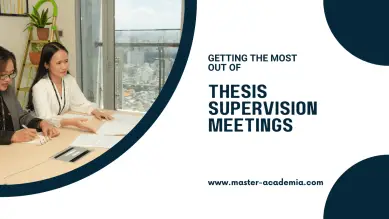
Academic writing is a skill that can be learnt. Students often equate complex and convoluted writing with high academic quality. In reality, concise language and to-the-point messages triumph in academia. Learn about minimalist writing, and how it can benefit your thesis and publications.
Disclaimer: This post may contain affiliate links, which means I may earn a small commission if you make a purchase using the links below at no additional cost to you. I only recommend products or services that I truly believe can benefit my audience. As always, my opinions are my own.
Contents
Minimalism for academics
Minimalism. Probably the word of 2020/2021. We all have heard of Marie Kondo and watched her peculiar way of folding shirts on Netflix. Covid-related lockdowns triggered a mass movement of tidying up.
While a clean workspace and getting organized are valuable for academics as well, there is another – less obvious – way in which minimalism can benefit you: minimalist writing.
Many big thinkers, particularly in the social sciences and humanities, are the opposite of minimalist writers. Think of Foucault. Or Bourdieu. However, you do not need to try and copy their writing style to appear smart. On the contrary: Simpler is better!
What is a minimalist writing style?
A minimalist writing style prioritises simple language and brief sentences. It focuses on a clear narrative. And it avoids any excessive use of descriptive language.
In short, a minimalist style guide to academic writing looks as follows:
- Be concise;
- Avoid too many commas. Instead, split a complicated sentence into two or more simple ones;
- Omit any information that is not directly relevant to your main argument;
- Avoid jargon;
- Don’t throw around concepts to impress someone.
After reading hours and hours of complex academic literature, this is easier said than done. We too often equate complicated writing with quality writing. If you don’t have to re-read a paragraph multiple times to understand it, it isn’t good enough, is it? Wrong!
Even if your complex text makes sense to you, put yourself into the shoes of your reader. This could be your supervisor, or a reviewer judging your manuscript. The clarity in your writing is paramount. In many cases, it can decide the success of your thesis and publications.

Keep your sentences short and get to the point
Long sentences, with several commas and sub-sentences, make it difficult to follow your argument. With a few exceptions, PhD and master’s students are not required to write prose. They are supposed to present their research findings.
When in doubt, split your long sentence into two. Trust me. Once you are in the position of a peer reviewer yourself, you will be thankful for a clear writing style yourself.
Next, not only your sentences, but your paragraphs should be to the point. Don’t introduce sub-arguments, don’t include backstories.
After many weeks of fieldwork, or weeks spend in the lab, the urge to showcase all your findings is understandable. However, squeezing too much information makes a thesis or manuscript messy.
When editing your text, always keep in mind: What is the one key message or finding that you want to bring across?
Avoid jargon and other disciplinary fallacies
Jargon – even though academic publications are full of it – is problematic. Certain words, expressions or concepts are always popular within a discipline. Therefore, it is easy to forget to provide a definition.
In interdisciplinary research, however, the fallacy of jargon is even more obvious. Don’t expect your reader to know what you mean. Always choose the save option: a clear definition or description.
Concepts are often taken for granted. However, even if a concept has been used a million times in your discipline, you NEED to state your definition of it. There might be hundreds of subtle differences in how academics use certain concepts.
The main rule here is: Do not assume that things are clear without stating them.
Communicating your findings to the outside world
Dissemination is increasingly important in academia. Not via academic publications, which are important as well. Rather, different ways in which your research is communicated with – and impacts – society at large.
Funding bodies, for instance, are not only interested in metrics like journal impact factors anymore. Instead, they are looking for narratives of how your research is societally relevant.
Using Twitter to share your research findings is one example. The idea? To share your research widely. In a limited number of words. To people who are likely not experts in your field.
Using social media, getting in touch with journalists interested in your research topic, and trying to influence policy decisions. All of these actions are much easier if you write in a minimalist style, to begin with.
Be your own editor
So how to put minimalist writing into practice? Be your own editor.
Be relentless when it comes to simplifying your writing. Delete unnecessary adjectives. Split sentences. Remove superfluous information.
And most importantly, spell out what might seem obvious to you, but not to someone else.
While working on a screen has some advantages, I recommended to print out your text once in a while. Working on paper will give you a new perspective and help you to spot mistakes that you overlook on screen.



